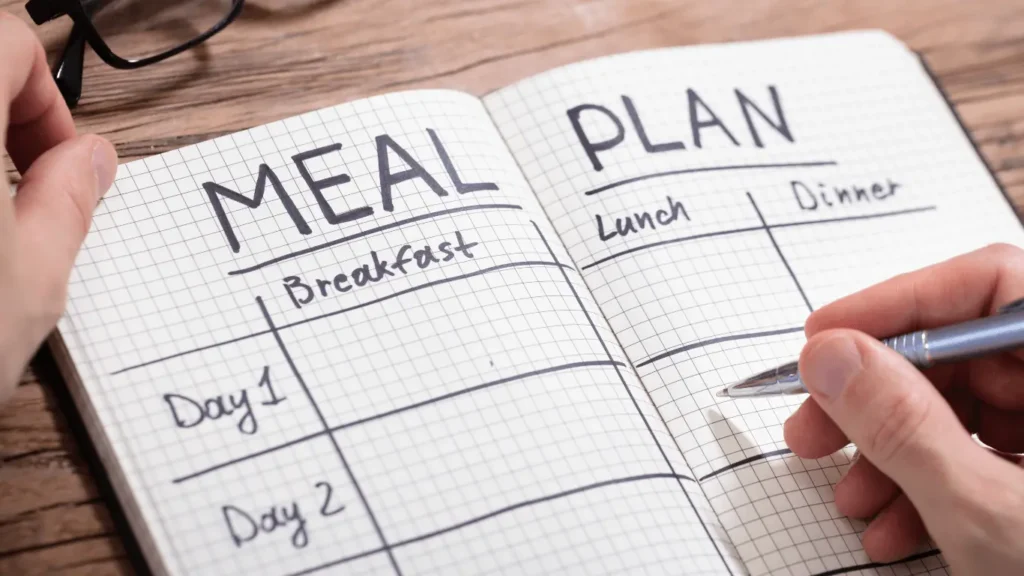If your mornings involve negotiating with a toddler about why socks aren’t optional, or shouting “We’re going to be late!” before your first sip of coffee, then you’re very much not alone.
Life with young children is joyful, messy, and full of unpredictable chaos. Some days feel like victories simply because everyone made it out of the house. The good news? A few small changes can help bring back a bit of calm to the day.
Below are five practical parenting hacks that save time, reduce stress, and are easy enough to actually stick with.
1. Nighttime Prep: A Simple Habit That Makes Mornings Easier
Why do parents prep the night before? Because mornings with kids are high-pressure. Reducing decisions and tasks in the morning gives you a calmer start and fewer tantrums.

Try starting with these steps:
- Lay out full outfits for each child, including underwear and socks (yes, really sock-related meltdowns are real)
- Pack nursery or school bags with everything needed: water bottles, snacks, spare clothes, comfort items, or forms
- Pre-set the breakfast table or prep grab-and-go options like overnight oats
Even ten minutes of prep in the evening can make the next morning feel less like a military operation. For older kids, try involving them in picking out clothes or packing their own bags. It builds independence and helps reduce those “I don’t want to wear that!” protests.ependence in older children and hopefully begin to teach good life skills.
Takeaway: Consistency is key. It’s not about perfection, it’s about giving your tomorrow-self a head start.
2. Set Up a Snack Station Kids Can Use Themselves
Why is this helpful? Because if your child is old enough to say “I’m hungry,” they may be old enough to manage a simple, self-serve snack solution.

How to create a kid-friendly snack station:
- Use a low cupboard, drawer, or shelf in the fridge
- Fill it with healthy, age-appropriate snacks like fruit, crackers, yogurt pouches, and rice cakes
- Add a “choose one” basket to teach moderation and reduce the snack pile disappearing in a day
This small setup encourages independence, especially in toddlers and preschoolers, and cuts down on the constant calls for food. Supervise young children where needed, but give them a sense of ownership. It can also make them more likely to eat what they’ve chosen.
Bonus Tip: Rotate snacks weekly to keep things interesting and introduce new healthy options.
3. Batch Cook Family Favourites (Even If It’s Just One Extra Portion)
Why do busy parents batch cook? Because cooking every night from scratch while managing tired kids just isn’t realistic. Batch cooking turns one effort into multiple wins.

What works well for freezing or storing:
- Mild pasta sauces loaded with hidden veggies
- Slow cooker stews and chicken curries
- Family favourites like Bolognese or fish pie
- Muffins, flapjacks, or healthy banana bread for snacks or lunchboxes
- Pre-chopped fruit or smoothie packs in freezer bags
Use weekends or quieter evenings to double up recipes and freeze extras. Label clearly and keep a list on the fridge of what’s inside, so you don’t forget what’s hiding at the back.
Tip: Get kids involved in baking or stirring when appropriate. It keeps them entertained and teaches valuable life skills.
4. Use a Weekly Meal Theme to Reduce Decision Fatigue
Why do so many parents use a weekly meal theme? Because by midweek, most of us are too tired to make yet another dinner decision. A simple theme for each day takes the thinking out of it, adds structure the kids enjoy, and makes meal planning feel a whole lot easier.

👉 Swipe sideways to see the full table
| Day | Meal Theme |
|---|---|
| Monday | Pasta Night (quick, comforting, and customisable) |
| Tuesday | Tacos or wraps with easy fillings |
| Wednesday | Leftover Night (clear out the fridge) |
| Thursday | Eggs or breakfast-for-dinner (omelettes, scrambled eggs) |
| Friday | Fakeaway Night (homemade pizza or oven chips) |
| Saturday | Slow Cooker meals (low effort, big reward) |
| Sunday | Family Roast or indoor picnic depending on energy levels |
Helpful Reminder: Write the plan on a fridge whiteboard or notepad so everyone knows what to expect.
5. Let Tech Take the Pressure Off Your Brain
What’s the mental load? It’s the invisible work parents do to remember everything: school forms, birthdays, library days, medicine doses, meal ideas, and more. Technology can help lighten that load.

Easy ways to get started:
- Use a shared Google Calendar with colour-coded categories (school, work, appointments)
- Set smart speaker reminders for small things like “put PE kit by the door”
- Keep a digital grocery list that all caregivers can add to
- Use apps like Cozi, AnyList, or even WhatsApp group chats for reminders and to-dos
These tools don’t make you a “digital parent” they make you a parent with room to breathe.
Tip: Try setting a 5-minute Sunday evening planning session to review the week ahead. It helps avoid surprises and keeps everyone on the same page.
Our Final Thoughts
No hack will stop your child from refusing their coat or having a meltdown because the blue cup is in the dishwasher. But these little changes can smooth the edges of the daily chaos and give you a bit more breathing space.
You don’t need to do everything perfectly. You just need a few tools, habits, and systems to make life a little bit easier.
Got a tip that helps your day run smoother? We’d love to hear from you! Come and say hi on Instagram @aceparentingclub.
Time-Saving Tips: Frequently Asked Questions from Parents
Start by prepping the night before. Lay out clothes, pack school bags, and prep breakfast in advance. A simple evening routine saves time and reduces morning drama. Consistency helps kids know what to expect each day.




